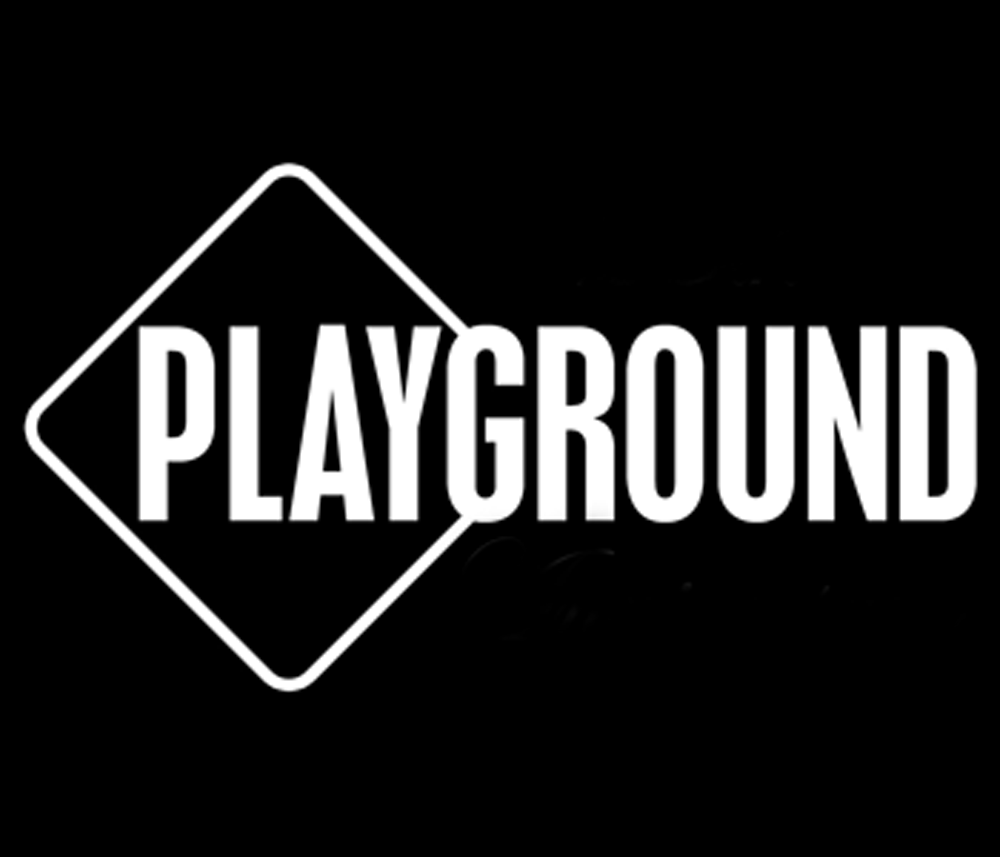Centering Black Experiences & Celebrating the African Diaspora
 One of PlayGround’s core mission tenants is to produce art that is relevant to and reflects the world around it. From the topics that we choose for our Monday Night PlayGround series, to prioritizing and maintaining diversity in our writers group and production teams, PlayGround believes that theatre is a vital catalyst for activism and a powerful medium for self expression that celebrates cultural traditions. With the earliest recorded theatrical events stemming directly from the African diaspora and the Egyptian “passion plays” in 2000 BC, theatre has always been essential to the strengthening of community and the passing-down of stories at the core of one’s cultural identity. The sharing of folk-tales, songs, and dance has always been a way to communicate the vitality of a culture’s history and to ritually cement its influence on the future generation.
One of PlayGround’s core mission tenants is to produce art that is relevant to and reflects the world around it. From the topics that we choose for our Monday Night PlayGround series, to prioritizing and maintaining diversity in our writers group and production teams, PlayGround believes that theatre is a vital catalyst for activism and a powerful medium for self expression that celebrates cultural traditions. With the earliest recorded theatrical events stemming directly from the African diaspora and the Egyptian “passion plays” in 2000 BC, theatre has always been essential to the strengthening of community and the passing-down of stories at the core of one’s cultural identity. The sharing of folk-tales, songs, and dance has always been a way to communicate the vitality of a culture’s history and to ritually cement its influence on the future generation.
Rarely does a play feel as potently relevant to our national discourse as does The Rendering Cycle, which chronicles a saga of inextricable tradition, trauma, and triumph across continents and eras ranging from present-day United States to West Africa of a millennium past. As our nation continues to combat entrenched racism and anti-Blackness, the stakes have been raised to prioritize stories from playwrights of color and to champion diversity and parity in casting and hiring practices. If we are to exorcise the malevolence of our past, we must address it on our public stages, head-on; we must listen to the voices of Black artists and activists as they call out for us to hold ourselves accountable for bringing voices of color into all our decision-making surrounding the creation of new theatre.
Inspired by a short play from 2016, The Rendering Cycle presents its broad historical epic as a tightly-paced series of short plays, a form with which playwright Genevieve Jessee has become intimately familiar. The American stage is no stranger to anthology plays (notably August Wilson’s The Pittsburgh Cycle and the Pulitzer-winning The Kentucky Cycle by Robert Schenkkan), but it is no small feat to condense hundreds of years of history into one full-length evening of theatre. PlayGround had commissioned Genevieve to write a new ten-minute play to help inaugurate the grand opening of PlayGround’s new theatrical home, Potrero Stage. As part of the Potrero Nuevo (“new pasture”) Project , PlayGround commissioned eight playwrights with the charge of developing short works that would help explore Potrero Hill’s storied past and hopefully inform its future. The result was Genevieve’s Walls Come Tumbling Down, loosely inspired by the tragic (and largely ignored) murders of Jamar Samuel and Prince Johnson, two young men in San Francisco’s oldest public housing, the Potrero Terrace, and the displacement of families from the pending demolition of the Terrace and Annex projects to make way for new housing development. Genevieve wrote a hauntingly beautiful piece to honor the memory of the fallen men and the shooting’s indelible stamp on their families’ memories of Potrero Hill. The short play premiered in February 2017 at the new Potrero Stage. When Genevieve then won PlayGround’s June Anne Baker Prize for a distinguished female playwright representing a gifted new comedic or political voice and full-length commission later that spring, she chose to create a 10-play cycle that would explore and honor African American voices, particularly women, and their journey through the African Diaspora over several hundred years.
Now more than ever, it is essential for theatre companies to investigate if they are doing enough to prioritize voices from artists of color, and particularly stories that share and honor the Black diaspora’s broad tapestry of experiences. Color-conscious casting and open calls are not enough; the theatre must work to create the inroads for artists of color who have been consistently demoralized by a system that is a reflection of the racially-biased society in which we live. PlayGround is honored to be working with playwrights like Genevieve to support and amplify their plays that will shape the future of American Theatre to be one that is equitable for all.
We recently sat down with Genevieve “virtually” to ask a few questions about The Rendering Cycle and are pleased to share her responses on the eve of her play’s Zoom Fest premiere presentation.
How long have you been a writer with PlayGround?
I’ve worked with PlayGround intermittently since 2011. I’ve moved in and out of the Bay Area for the last 10 years or so. Whenever I’m in the Bay Area I try to connect with them, because they’re such a phenomenal support system and resource for playwrights.
How has PlayGround helped you as a playwright?
What I love about PlayGround is that they’re really rooted in trying to move forward the development of playwrights. They make space for writers to find their voices, make mistakes, and ultimately become better writers. They’ve connected me with theatre companies, actors, directors and other playwrights all working in the professional realm. It’s an incredibly supportive environment that helped me build confidence, and hone my craft.
What is another favorite play you have written?
He is Heavy is a ten-minute play I wrote about 10 years ago that still really resonates with me. It’s actually the piece I submitted to apply to PlayGround for the first time.
How long have you been developing The Rendering Cycle?
I began working on this piece in 2017 as a commission from PlayGround. I further developed it as a fellow at the Camargo Foundation in Cassis, France.
What inspired The Rendering Cycle?
I get so much satisfaction from writing ten-minute plays. It’s really a practice in constraint and how to convey as much as I can in a short amount of time. It occurred to me that I could create a full-length play from a series of connected short plays. Some of the first theatre I was introduced to was the work of August Wilson. I was struck by his century cycle, and the idea of a series of plays from the African American perspective, and I really wanted to do that for Black women.
Has the script changed during the rehearsal process? How?
One of the challenges and strengths of this piece is that it’s 10 plays that can be reordered to really create a unique production each time. So I’ve probably written 20 parts for this work that have come and gone, shifted and been rewritten. So it’s changed dramatically through its development.
What excites you about this Zoom Fest premiere?
It’s unchartered territory, and there’s always something exciting about the unknown. I love that PlayGround is at the vanguard of presenting this virtual theatre experience. I’m eager to see what doors this will open for theatre accessibility and outreach to communities who maybe would not have attended in a traditional theatre setting.
What do you want audiences to know about The Rendering Cycle?
It’s a labor of love. It’s an homage to the many women who reared me, and the ones who came before. I wanted to tell a compelling story with Black women at the heart of it. The play’s journey crosses centuries and continents, landing in a place we can all connect – love, survival and progress.
What has been your favorite coping/soothing activity during Shelter-In-Place?
Walks with my 5-year-old daughter and wine. Not at the same time.
What have you enjoyed about digital theatre?
I grew up in Oakland, CA, then went to undergrad in New Orleans, and graduate school in Boston. My wife is active-duty Army, which requires us to move every two years. So I’ve lived all over the US and have met amazing people in each place. I love that digital theatre allows us to have a shared experience together while being apart.
What do you miss about theatre in person?
A live audience that you can feel holding their breath, hear laughing and chatting. It’s a collective experience in real time, and the energy in the room is palpable.
What is your next playwriting project?
We are expecting our second child in August, so I’ll be practicing the art of parenting in the near future. Beyond that, I’m looking forward to clearing space for my next big idea to pop up.
Anything else you want to say to audiences?
Come and support this beautiful cast and let them take you on a helluva ride.
Join us for the Zoom Fest premiere presentation of The Rendering Cycle (June 6 & June 7 5pm PT) by reserving a ticket at https://playground-sf.org/renderingcycle/. Looking for additional financial accessibility options? Contact our box office at boxoffice@playground-sf.org.
